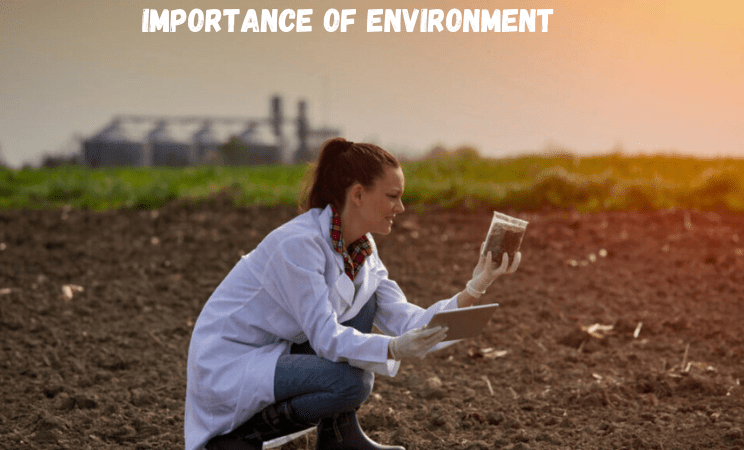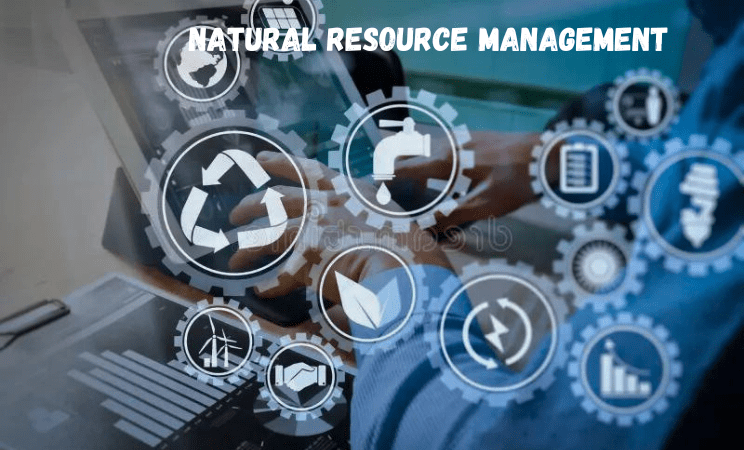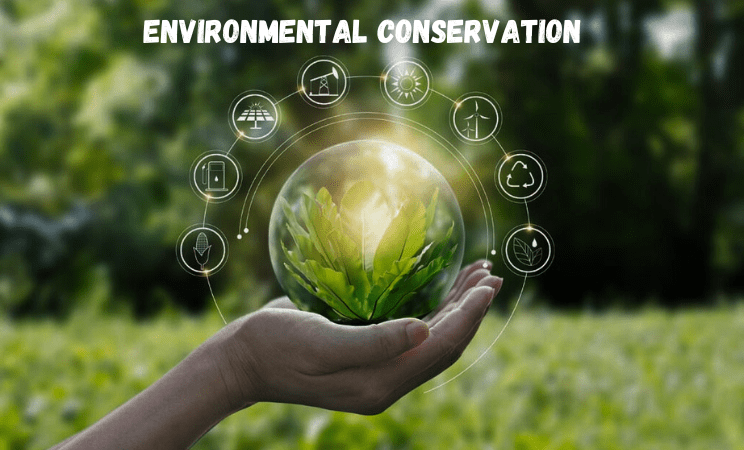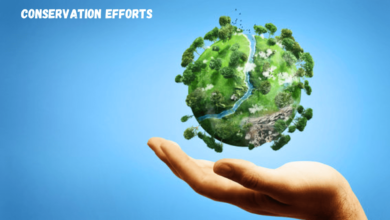The Importance of Environment: A Comprehensive Guide

Importance of Environment: The environment, often referred to as our planet’s life support system, is of paramount importance to the well-being of all living organisms, including humans.
This comprehensive guide aims to shed light on the myriad ways in which the environment shapes our lives, from the air we breathe to the food we eat. Understanding the environment’s significance is not only a matter of ecological awareness but also a necessity for sustaining a healthy.
Prosperous future for generations to come. From clean water sources and diverse ecosystems to climate stability, the environment is the bedrock of our existence, urging us to protect and cherish it.
Ecosystems: Nature’s Masterpieces
Ecosystems, nature’s masterpieces, are intricate and balanced realms of life and the Importance of Environment. They encompass a web of diverse organisms and their surroundings, each playing a vital role in maintaining equilibrium. Biodiversity within these ecosystems is a wellspring of resilience, offering genetic diversity and essential ecosystem services, from clean air to fertile soil. Ecosystems reveal the delicate interplay of life and nature, underscoring their irreplaceable importance in sustaining our planet. The harmony within these intricate systems is a testament to the beauty and complexity of the natural world, and their preservation is essential for the well-being of all life on Earth.
Climate Change: A Global Crisis
Climate change, driven by escalating greenhouse gas emissions from human activities, presents an imminent global crisis. Rising temperatures, intensified weather events, and sea-level increases are but a few of its repercussions. This phenomenon imperils ecosystems, food security, and human habitation, creating a profound urgency for action. Strategies for mitigation, including reducing emissions, and adaptation, such as enhancing resilience, are imperative to address this crisis. Climate change is no longer a distant concern; it is a defining challenge of our era, demanding international cooperation and individual responsibility to safeguard our planet and future generations.
Air Quality: The Breath of Life
Clean air is our lifeline, a fundamental component of well-being. Air pollution, arising from sources like industry and transportation, poses a grave threat to human health. Particulate matter and noxious gases degrade air quality, leading to respiratory issues and chronic diseases. Vigilant regulation and eco-friendly practices are crucial to ensure breathable air for all. Protecting air quality safeguards our collective health and the Importance of Environment. It is a shared responsibility to preserve the purity of the air we breathe, for it is, quite literally, the breath of life.
Water: The Essence of Life
Water, often referred to as the essence of life, is a fundamental component of ecosystems. It plays a pivotal role in sustaining biodiversity and shaping the physical and chemical characteristics of various habitats. Ecosystems across the globe rely on water for their existence. Aquatic ecosystems, including rivers, lakes, and oceans, are home to an astounding array of species, from the tiniest plankton to the largest whales. Terrestrial ecosystems, too, depend on water for the growth of vegetation and the survival of animals. The distribution of life on Earth is intricately linked to the availability of water. It’s not only a source of hydration for organisms but also a medium for nutrient transport and a regulator of temperature and climate. Water’s significance in ecosystems goes beyond its role as a vital resource; it is a linchpin that holds the intricate web of life together.
Land and Soil: Earth’s Silent Guardians
The Earth’s land and soil, often overlooked in the broader Importance of Environment discourse, are silent guardians of life. Fertile soil is the bedrock of agriculture, providing the sustenance that feeds humanity. However, these crucial resources face increasing threats, primarily from deforestation and unsustainable land use practices. Land degradation compromises our ability to grow food and sustain ecosystems. Sustainable agriculture practices and responsible urban planning are essential to protect these vital resources. By preserving the health of our land and soil, we secure the foundations of our existence, ensuring that they continue to support life for generations to come. Land and soil, though silent, are powerful stewards of our well-being, and their preservation is paramount.
Biodiversity: The Web of Life
Biodiversity, often referred to as the “web of life,” encapsulates the incredible variety of species that inhabit our planet. From the microscopic to the massive, every organism plays a crucial role in the intricate ecological tapestry. This diversity is not just a source of wonder but a fundamental pillar of ecosystem stability. Unfortunately, human activities, such as deforestation, habitat destruction, and overexploitation, have pushed many species to the brink of extinction. As species disappear, the web weakens, affecting the balance of nature and human survival. Conservation efforts, habitat protection, and responsible resource management are essential to preserve biodiversity. Recognizing the intrinsic value of all life forms and their contribution to the planet is key to ensuring a sustainable future.
Human Impact: A Double-Edged Sword
Humanity’s influence on the planet is a double-edged sword. On one hand, our remarkable ingenuity, technological advancements, and industrialization have propelled us into the modern age, improving living standards and quality of life for many. On the other, this rapid growth has brought about dire consequences for the environment. Urban sprawl, deforestation, pollution, and overconsumption have triggered ecological imbalances, threatening biodiversity and disrupting delicate ecosystems. As we navigate the Anthropocene era, we must recognize the need for a fundamental shift in our approach. By embracing sustainable practices, responsible resource management, and conscious consumerism, we can mitigate the detrimental aspects of our impact. The challenge lies in finding the equilibrium between progress and preservation to ensure a more sustainable and harmonious coexistence with our planet.
Sustainable Living: The Way Forward
A brighter future depends on sustainable living. It’s about embracing practices that respect the environment and balancing the needs of the present without compromising the needs of the future. By making conscious choices in our daily lives, like reducing waste, conserving energy, and supporting eco-friendly initiatives, we contribute to a healthier planet. Individual and collective actions are paramount. The Sustainable Development Goals provide a global framework for positive change. The path to sustainability is one of hope. By adopting sustainable practices and fostering a deeper connection with our environment, we can shape a world where both humans and nature thrive. It’s a journey worth embarking on, for ourselves and the generations yet to come.
Conclusion
Ecosystems are nature’s intricate and interdependent masterpieces, where life flourishes in diverse and remarkable ways. They encompass a wide spectrum of environments, from lush forests to arid deserts and the depths of our oceans. Ecosystems are not only essential for the survival of countless species, but they also provide critical services that sustain life on our planet.
Understanding and preserving these complex systems is of paramount importance in an era where human activities pose significant threats to their integrity.
It is our responsibility to appreciate and protect these wondrous natural creations, recognizing that they are the very foundation of life on Earth.
FAQs
What is biodiversity and why is it important?
Biodiversity refers to the variety of life on Earth; it’s crucial for ecosystem stability and resilience.
How does air pollution affect human health?
Air pollution harms the respiratory system, causing diseases like asthma and increasing mortality rates.
Why is climate change a global crisis?
Climate change, driven by human activities, causes extreme weather events and threatens ecosystems and economies.
What are the main sources of water pollution?
Water pollution results from industrial discharge, agricultural runoff, sewage, and improper waste disposal.
How can individuals contribute to environmental sustainability?
Individuals can reduce waste, conserve water, use renewable energy, and support eco-friendly practices.



